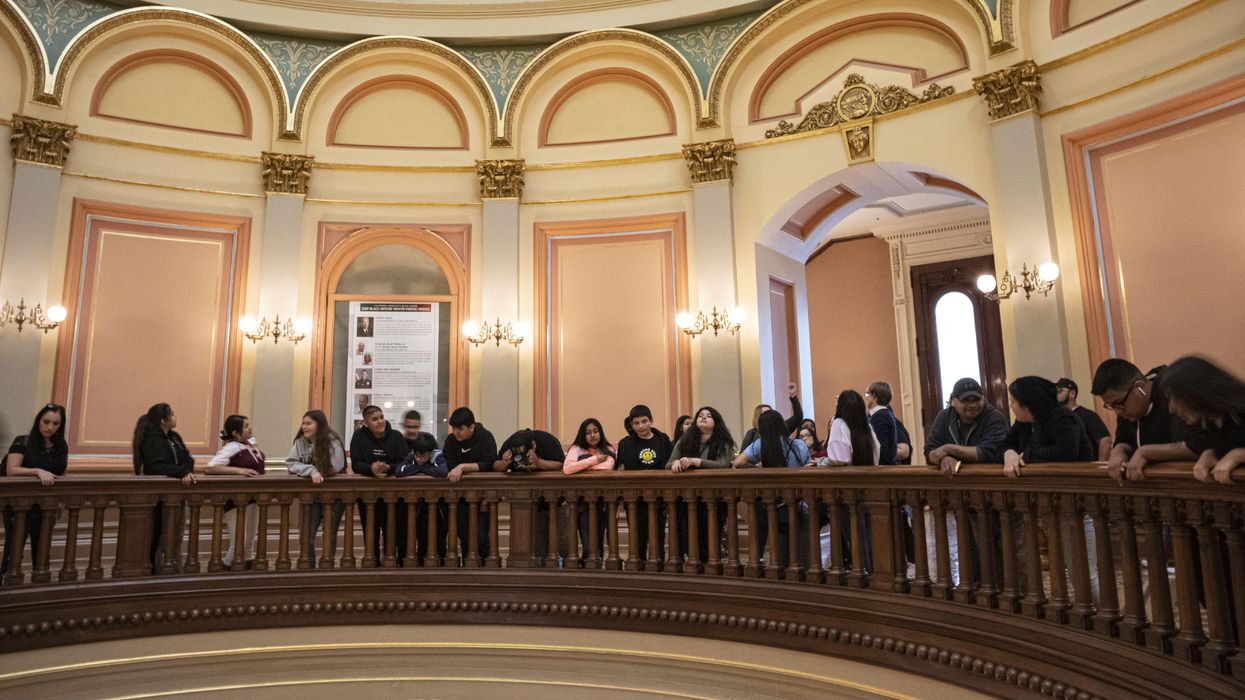Frazier, a student at the University of California, Berkeley School of Law, runs The Oregon Way, a nonpartisan blog.
A few weeks back, the Tualatin Rotary Club kindly invited me to speak about The Oregon Way, the nonpartisan blog I started as a way to revive Oregon's civic culture. I ran through a presentation that, among other things, called for improving civic knowledge in the state.
When the meeting ended, a former educator approached me. They wanted to make sure I knew about SB 513, a recently passed bill meant to shore up civic education in Oregon schools. And, while the bipartisan legislators that championed that bill deserve praise, it's a woefully inadequate response to a dire lack of civic knowledge. Real civic knowledge requires civic education as well as civic experience.
The text of the bill itself lays out the dismal state of civic knowledge among America's youth. The last time high school seniors took a national assessment on civic knowledge — back in 2010 — less than one in four students scored "proficient." One in three had a "below basic" knowledge of our democracy. In response, the Oregon Legislature passed a bill that's too late and does too little.
The crux of the bill — a requirement to pass a civics course before graduation — doesn't come into force until the Class of 2026 (students just starting eighth grade). In the interim, Oregon will continue to send students through an education system without preparing them to thrive as democratic participants. Most other states also require some sort of credit requirement prior to graduation.
But a couple of credits from civics-related courses will leave students short of developing meaningful civic knowledge. Imagine if Michael Jordan's basketball education was confined to reciting the rules of the game. Do you think he'd be the greatest of all time? No.
Most students will treat the mandated courses and assignments like any other requirement — check the box, complete the tests and move on to the next thing. What made MJ incredible was actually getting in the game. We need to give our future leaders the same opportunity — civic education and civic experience.
If we really want to prepare students to shape our democracy, then we must create opportunities for them to practice just that — actually participating. Of course, a basic understanding of our Bill of Rights, Constitution and federalist system is essential, but numerous and substantive experiences in democratic activities can be transformative.
The other person who came up to me after the meeting had just that sort of transformative experience. Her school required every student to work on a political campaign before graduation. She was assigned to assist Leon Panetta in his race for Congress. Of course, Panetta won that race and, decades later, eventually served as secretary of defense. With every move Panetta made up the political ladder, his student campaign volunteer kept her eye on him — she felt like she had an obligation to see if he lived up to the initial campaign pledges he made so many years before. That's civic knowledge in action.
Imagine if we empowered young Americans to attend city council meetings, submit testimony to the state legislature, and volunteer for a campaign of their choice (local, state or federal). That's the sort of learning that will build on traditional conceptions of civic education and actually improve civic knowledge.
Some people will say that requiring civic experiences just isn't feasible in these partisan times. And it's true that a participation requirement is more controversial than merely asking students to recite the Bill of Rights. However, that requirement, as mentioned above, doesn't have to be tied to a particular party, candidate or ideology. Attending a semester's worth of city council meetings doesn't force any sort of speech or preach a certain ideology, it merely reminds students that they have a seat at the table — and should make the most of that seat.
Others will say that students can seek out political internships on their own accord. The problem is many of those positions aren't paid and, even if they are, may only go to the kids of parents already thoroughly engaged in our democracy. Our hands-off approach to civic experiences means that only a select bunch of students tend to accumulate the knowledge necessary to shape our democracy. Our country must do better than that by making civic experiences just as much of an expectation as civic education and as soon as possible ... not years from now.
Oregon and the rest of the United States cannot wait until 2026 to give our students the tools they need to secure a democracy that's facing threats from nearly every angle. We need more than tests of civic education to prepare our students for the task of leading our state into the future. We ought to provide every student with meaningful civic experiences that remind students that they, like the rest of us, are the drivers of our democracy.




















